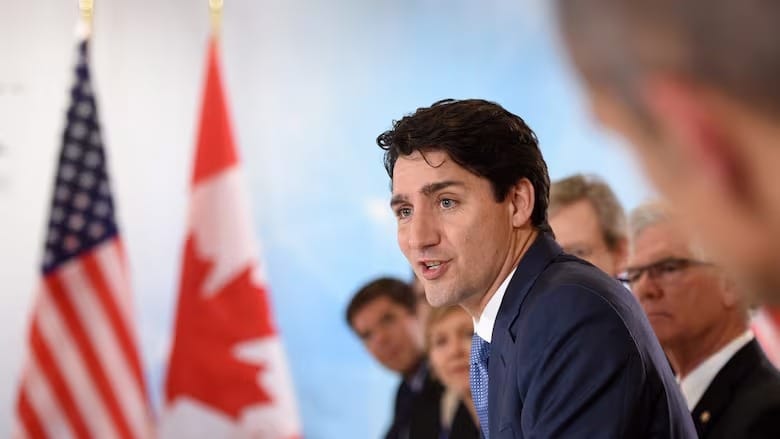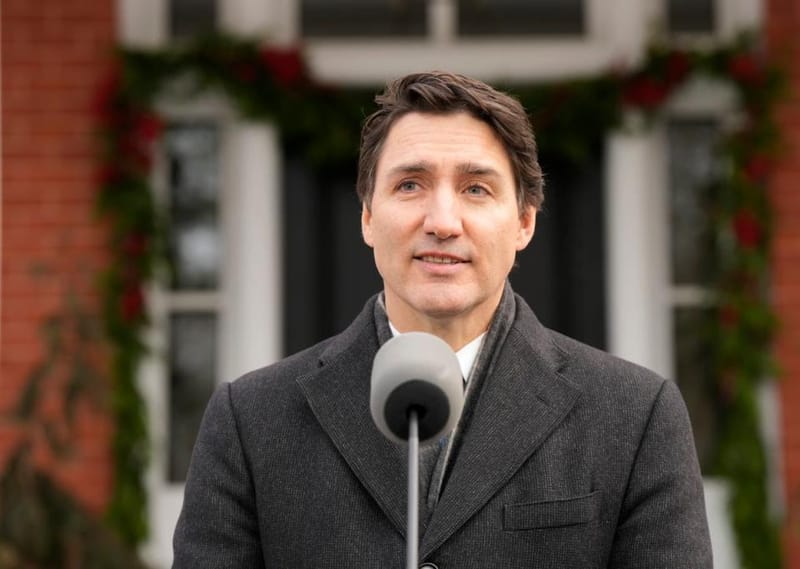Trudeau's tumultuous relationship with the Canadian oilpatch
Outgoing PM bought Trans Mountain pipeline but also introduced policies that were deeply unpopular in sector

A scene that might seem hard to believe if it weren't for video footage unfolded in 2017, when Prime Minister Justin Trudeau addressed the CERAweek energy conference in Houston. Speaking to an audience of 1,200 energy executives and leaders, he emphasized the importance of Canada's oil and gas sector and was met with multiple standing ovations. "No country would find 173 billion barrels of oil in the ground and just leave them there," Trudeau remarked. "The resource will be developed. Our job is to ensure that this is done responsibly, safely and sustainably."
At that time, Trudeau suggested that environmental protection and resource development could go hand-in-hand, with progress being made "in cooperation with our provinces." However, fast forward to 2025, and the oil and gas sector's sentiment toward the now-outgoing Prime Minister has shifted drastically. Alberta Premier Danielle Smith, for instance, would likely disagree with Trudeau's claims of cooperation between the federal government and the provinces.
So, what went wrong?
Even in the early days of his leadership, Trudeau faced criticism from the oil and gas sector, particularly following the cancellation of the Northern Gateway pipeline project. His 2017 suggestion that the oilsands should be "phased out" also drew backlash in Alberta.
While the Trudeau government did purchase the Trans-Mountain Pipeline—boosting Canadian oil exports—several other policies introduced by his government have proven unpopular in the oilpatch. A key example is the oil and gas emissions cap, which many industry players see as a de facto cap on production. The argument is that limiting Canada's oil output won’t reduce global demand—it will simply lead other countries to increase production, without necessarily meeting higher environmental or human rights standards.
"We've been the only country in the world that has, for a decade, been shooting itself in the foot so that a small number of politicians can pat themselves on the back," stated Martha Hall Findlay, former head of climate at Suncor and now a director at the University of Calgary’s school of public policy.
Additionally, there are policies such as the Clean Fuel Regulation, Clean Electricity Regulations, Bill C-69, and Bill C-59, which insiders describe as complicated, burdensome, and disproportionately targeting the oil and gas sector.
Richard Masson, also from the University of Calgary’s public policy school, explained that policy uncertainty and infighting have ultimately hindered the government's ability to meet climate targets. A prime example is the delayed carbon capture and storage (CCS) project proposed by the Pathways Alliance, a group of oilsands companies. While CCS could help decarbonize oil sands production, disagreements about fiscal terms and other details have stalled progress.
Trevor McLeod, former director at Enbridge and Canada West Foundation, acknowledged Trudeau's efforts to prioritize emission reductions but argued that the Prime Minister seemed to intentionally cultivate conflict, limiting his potential impact on climate change.
Janetta McKenzie from the Pembina Institute, a clean energy think-tank, credited Trudeau's government for advancing some important oil and gas emissions regulations, despite a tumultuous few years.
While environmental groups have criticized Trudeau for not doing enough to curb emissions in the oil and gas sector, his government did purchase the Trans-Mountain Pipeline for $4.5 billion, despite significant opposition from environmentalists. The pipeline, once completed, played a crucial role in boosting oil production and expanding Canada's export markets, contributing to the growth of both Alberta's and the country's GDP.
Martha Hall Findlay recognized the importance of the federal government stepping in, saying, "It has already shown to be immensely valuable not just for the industry, but for the country as a whole." However, she pointed out that the political uncertainty at the time made the intervention almost unavoidable, even at the expense of taxpayers.
Rafi Tahmazian, a retired energy portfolio manager, similarly criticized the decision, saying the government was left with no choice but to purchase the pipeline, resulting in significant cost overruns that burdened Canadians.
With Trudeau now preparing to leave office, many in the oil and gas sector hope for a more favorable relationship with the incoming leadership. Reports suggest that oil and gas stocks surged following the news of Trudeau’s resignation.
"Today is a fantastic day for energy investors. It's one I've been praying for for many, many years," said Eric Nuttall, senior portfolio manager at Ninepoint Partners, commenting on the news. "I think this is the beginning of the elimination of the political risk discount being applied to our stocks."
Despite the optimism, it remains uncertain whether a change in leadership will put an end to the ongoing conflicts between the oil and gas industry and the federal government. History has shown that early enthusiasm can often fizzle out, and the long-term relationship between the two parties may still face challenges.





